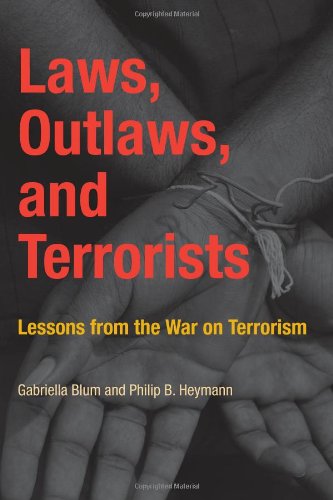In an age of global terrorism, can the pursuit of security be reconciled with liberaldemocratic values and legal principles? During its "global war on terrorism," the Bushadministration argued that the United States was in a new kind of conflict, one in which peacetimedomestic law was irrelevant and international law inapplicable. From 2001 to 2009, the United Statesthus waged war on terrorism in a "no-law zone."
In Laws,Outlaws, and Terrorists, Gabriella Blum and Philip Heymann reject the argument thattraditional American values embodied in domestic and international law can be ignored in anysustainable effort to keep the United States safe from terrorism. They demonstrate that the costsare great and the benefits slight from separating security and the rule of law. They call forreasoned judgment instead of a wholesale abandonment of American values. They also argue that beingopen to negotiations and seeking to win the moral support of the communities from which theterrorists emerge are noncoercive strategies that must be included in any future efforts to reduceterrorism.
Gabriella Blum is Rita E. Hauser Professor of Human Rights and International Humanitarian Law at Harvard Law School, author of Islands of Agreement: Managing Enduring Armed Rivalries, and former Legal Advisor for the Israel Defense Forces.
Philip B. Heymann is James Barr Ames Professor of Law at Harvard Law School and a former Deputy Attorney General of the United States. He is author of Terrorism, Freedom, and Security (2003) and Preserving Liberty in an Age of Terror (2005), both published by the MIT Press.
